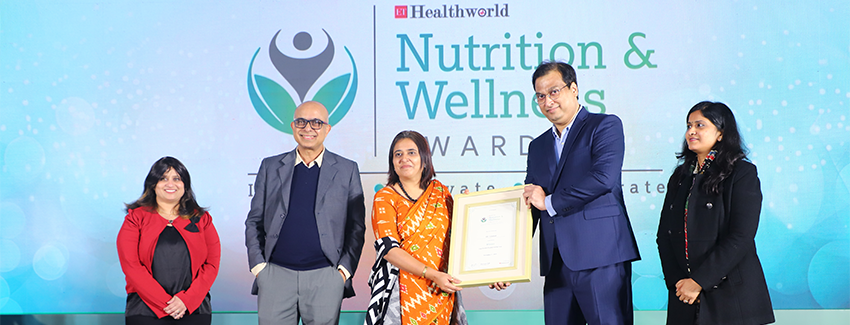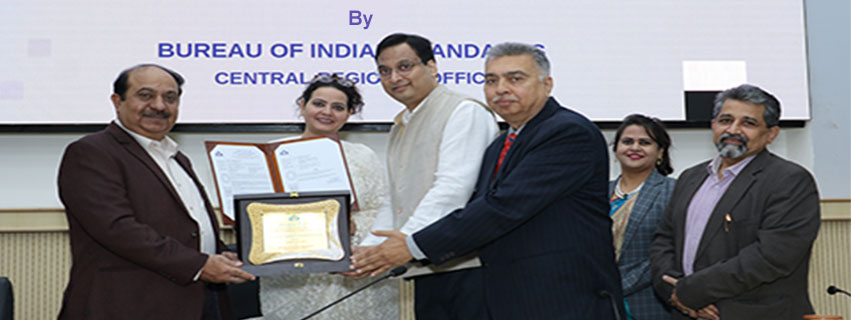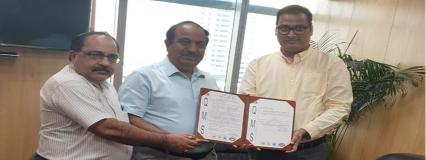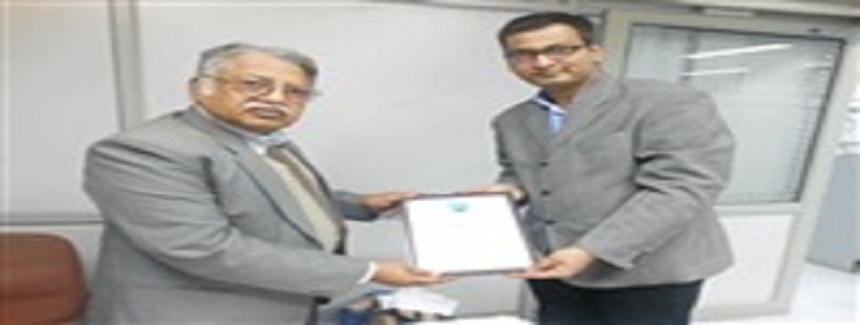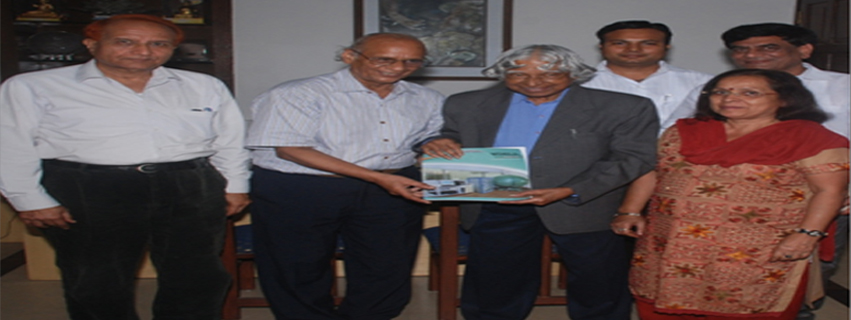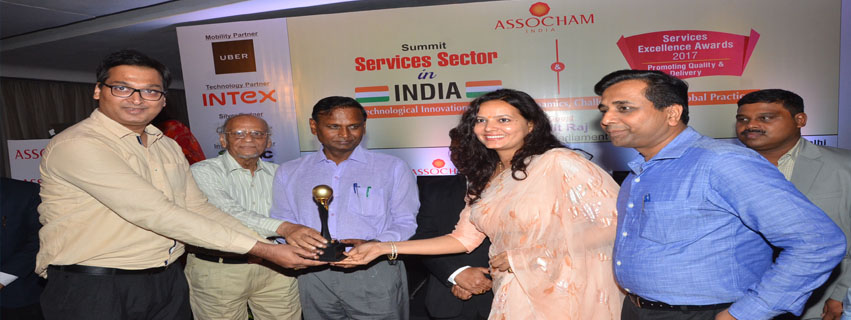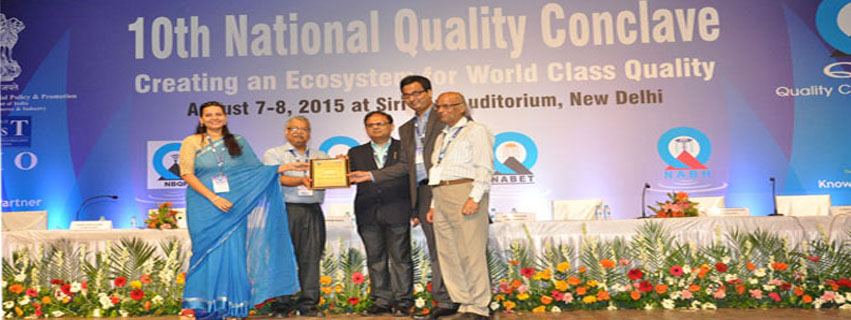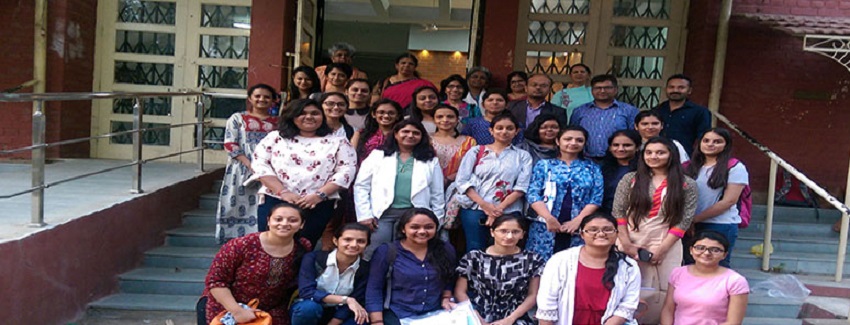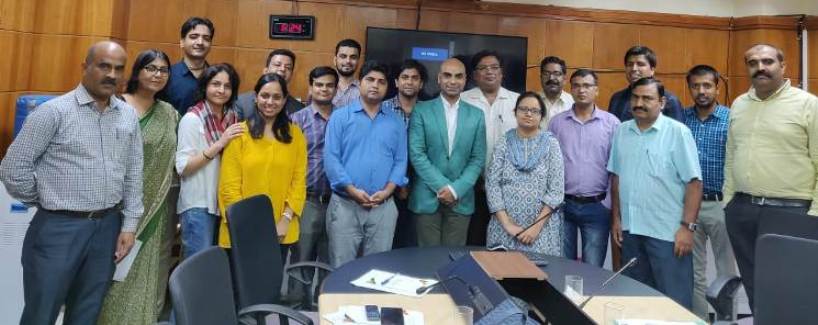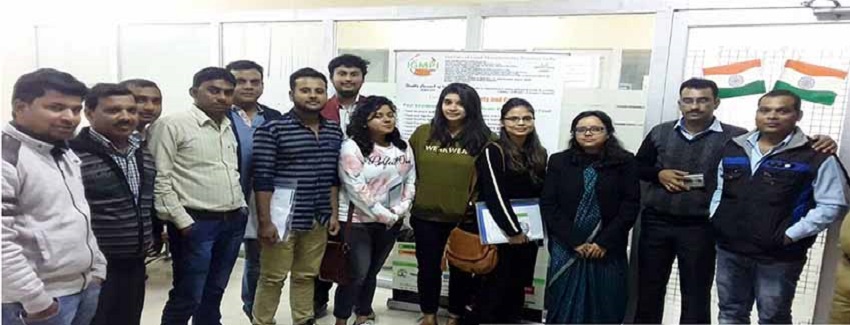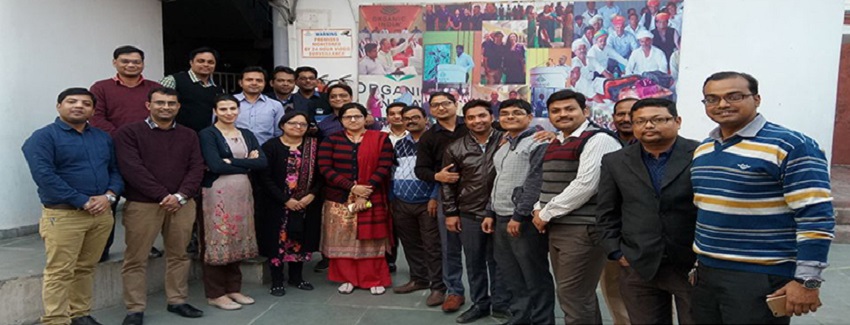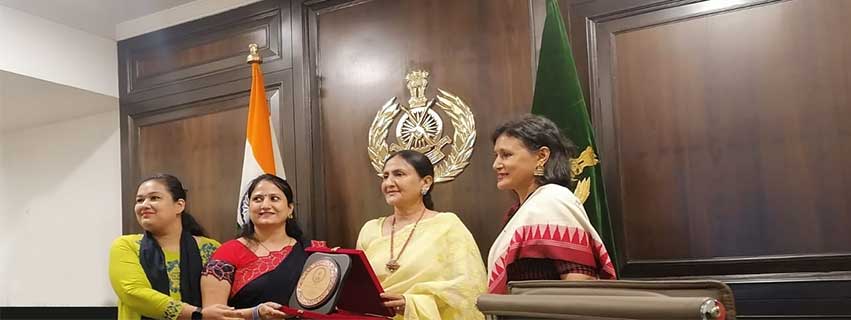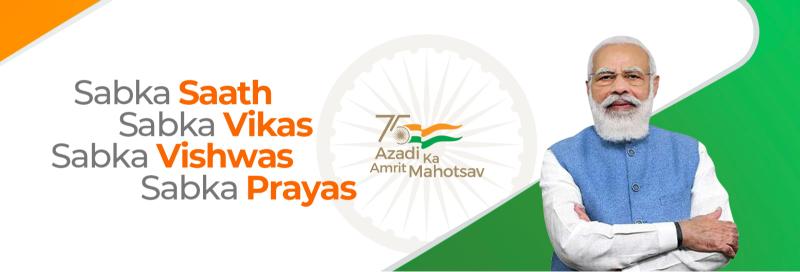(An Autonomous Body Recognized by Ministry of Commerce & Industry, Government of India)
Competency based placement focussed Education | Training | Research | Consultancy
Post Graduate Diploma / Executive Diploma in Sustainable Agriculture (PGDSA/EDSA)
In the face of climate change, resource depletion, and social inequities, the need for resilient and ecologically sound food systems has never been more urgent. This one-year course in Sustainable Agriculture offers a comprehensive, interdisciplinary understanding of farming systems that are environmentally responsible, economically viable, and socially inclusive. Through a strong foundation in agroecological principles, systems thinking, soil and water stewardship, climate-smart strategies, and social equity, learners will explore how agricultural practices can regenerate ecosystems while supporting rural livelihoods.
The program integrates scientific inquiry with contextual case studies to help learners critically examine the complexities of food production in diverse agro-climatic and socio-economic settings. Emphasis is placed on practical learning, participatory analysis, and reflective thinking—preparing students to engage with real-world challenges in policy, extension, research, and farm-level sustainability. Whether aspiring to become researchers, development professionals, or conscious Agri-entrepreneurs, graduates of this program will be equipped with the knowledge and skills to contribute meaningfully to the transition toward sustainable food and farming systems.
Programme Structure
Module 1: Systems Thinking in Agro-Ecosystems
- Explore agriculture as an interconnected socio-ecological system using systems thinking, feedback loops, and sustainability frameworks.
Module 2: Soil Health and Conservation Agriculture
- Understand the biological, chemical, and physical properties of soil and examine practices that promote long-term soil fertility and resilience.
Module 3: Sustainable Plant Production and Ecosystem Services
- Explore cropping systems that support ecological functions and understand how biodiversity enhances productivity and sustainability.
Module 4: Integrated Livestock and Mixed Farming Systems
- Examine the role of livestock in sustainable farming and understand their integration in mixed systems for resource efficiency and resilience.
Module 5: Water Resource Management in Agriculture
- Understand the dynamics of water use in agriculture and explore sustainable practices such as efficient irrigation, water harvesting, and watershed management.
Module 6: Climate-Smart and Regenerative Agriculture
- Explore the impacts of climate change on agriculture and understand adaptive and regenerative practices that build resilience and enhance ecosystem health.
Module 7: Integrated Pest and Nutrient Management (IPM & INM)
- Understand ecologically balanced approaches to pest control and soil nutrition through biological inputs, crop diversity, and integrated practices.
Module 8: Data Analytics and GIS for Sustainable Agriculture
- Explore tools and techniques for analysing agricultural data and using GIS to support evidence-based decision-making and sustainable land management.
Module 9: Gender, Social Equity, and Sustainable Development in Agriculture
- Examine how gender, caste, class, and access to resources influence participation, decision-making, and outcomes in sustainable agriculture.
Module 10: Value Chains, Marketing, and Sustainable Agribusiness
- Understand how agricultural products move through value chains and explore market systems, certification schemes, and farmer-owned enterprises.
Module 11: Policy, Governance, and Institutional Frameworks
- Analyse policies, programs, and institutional structures that shape sustainable agricultural systems at local, national, and global levels.
Module 12: Case Studies and Field-Based Applications
- Explore real-world agricultural systems through case studies and reflect on diverse strategies, challenges, and lessons learned from the field.
Module 13: Capstone Project
Eligibility
Graduates in any discipline are eligible for our Post Graduate Diploma, Executive Diploma and Professional Certification Programmes.
Programme Duration
The minimum duration to complete the PG diploma programme is 12 months and maximum is 24 months. The minimum duration to complete the executive diploma programme is 6 months and maximum is 12 months.
Programme Mode
Registrations are currently open for regular and Part-time (Online Live Classes) both modes.
Programme Deliverables
A comprehensive study material for all the modules in hard copies ensuring the needs of the audience. The accompanying training material is appropriately aligned with the current Industry’s expectations.
- Interactive or online live sessions on all key areas of the programme giving all flexibility to the participants
- Online Live Classes/Part-time for all the modules will be conducted on the weekends. Moreover, a doubt clearing session will also be scheduled before the examination
- All the efforts are made by IGMPI faculty members to make the entire programme modules easily understandable
- Assessment and evaluation for all the programme modules in order to enhance the levels of competencies and skills of the participants leading towards the objective of application in the job
- At the end of each programme modules, the trainers shall obtain feedback from the participants using specially designed questionnaires
- All learning and training delivery initiatives shall be conducted in English
Examination and Certification
All the participants are obliged to timely submit completed assessment assignments (during the programme, usually after every module) and appear for an online proctored exam at the end of the programme. After successful completion, the participants will be awarded Post Graduate Diploma/ Executive Diploma in Sustainable Agriculture by Centre for Environmental Health and Safety, IGMPI. For all the above-mentioned modules elaborate programme material, self-assessment assignments and project work details would be provided by the Institute from time to time. Details get updated on the webpage as well.
Discipline in Classes and Examination
Every student is required to observe a disciplined behaviour during her/his classes, assessments & examinations and to follow instructions from the Professors. Any act of indiscipline may result into discredit & it will be mentioned in her/his academic report.
Placement Assistance & Corporate Relations
The Institute has partnered with many organizations for providing with placement assistance to its participants. Besides, it has a robust placement cell comprised of senior level Human Resources professionals and Talent Acquisition experts which maintains close links with business and industry. This cell is continuously engaged in promoting the employability of our participants and encouraging the concerned Human Resource department and Hiring Managers to recruit/hire our participants for their vacant positions. The efforts of our placement cell also include helping with professional resume writing and interview skills.
In recent months, the Institute has witnessed more and more participation from professionals working with global think tanks. The IGMPI ‘s Corporate Resource Division actively recommends our students and training participants for various job requirements and specialized roles to Human Resource, Talent Acquisition as well as the heads of various departments in the industrial sector on a regular basis.
Future career prospects
Graduates of the Sustainable Agriculture program will be well-positioned for diverse and impactful career paths across the public, private, and development sectors. They can pursue roles as agroecology specialists, sustainability consultants, program officers in NGOs, agricultural extension workers, or researchers in climate-resilient agriculture and food systems. Opportunities also exist in agri-business firms, certification bodies, policy think tanks, and international organizations working on sustainable development and environmental governance. Additionally, the course lays a strong foundation for those interested in academic research or entrepreneurship in organic farming, natural resource management, or value chain innovation, enabling them to lead transformative change in agri-food systems.
Programme Fee Details
Programme fee details will appear here.
Last date for submitting completed Application Form: 24th Feb 2026.
For further enquiries, call or write to us on:
18001031071
(Toll Free -9:00 am to 5:30 pm IST-except on Central Government holidays)/
info@igmpi.ac.in
NEWSLETTER
Other Programmes
- Business and Human Rights (PGDBHR/EDBHR)
- Business Sustainability (PGDBS/EDBS)
- Climate Change Technology (PGDCCT/EDCCT)
- Corporate Affairs Management (PGDCAM/EDCAM)
- Corporate Social Responsibility and Sustainable Management (PGDCSRSM/EDCSRSM)
- Disaster Management (PGDDM/EDDM)
- Environmental Health and Safety (PGDEHS/EDEHS)
- Development Management (PGDDM/EDDM)
- Environmental Law and Policy (PGDELP/EDELP)
- Environmental Studies and Resources Management (PGDESRM/EDESRM)
- Environmental Social & Governance (PGDESG/EDESG)
- Fire Technology & Industrial Safety Management (PGDFTISM/EDFTISM)
- Green Technologies (PGDGT/EDGT)
- Geoinformatics (PGDGI/EDGI)
- Oil & Gas Technology and Management (PGDOGTM/EDOGTM)
- Industrial Safety Management (PGDISM/EDISM)
- Industrial Hygiene (PGDIH/EDIH)
- Natural Resource and Biodiversity Management (PGDNRBM/EDNRBM)
- Remote Sensing and Geographic Information System (PGDRSGIS/EDRSGIS)
- Petroleum Technology and Management (PGDPTM/EDPTM)
- Power Management (PGDPM/EDPM)
- Public Policy and Sustainable Development (PGDPPSD/EDPPSD)
- Renewable Energy Management (PGDREM/EDREM)
- Sustainable Development (PGDSD/EDSD)
- Urban Planning (PGDUP/EDUP)
- Water Resource Technology and Management (PGDWRTM/EDWRTM)
- Waste Management (PGDWM/EDWM)

